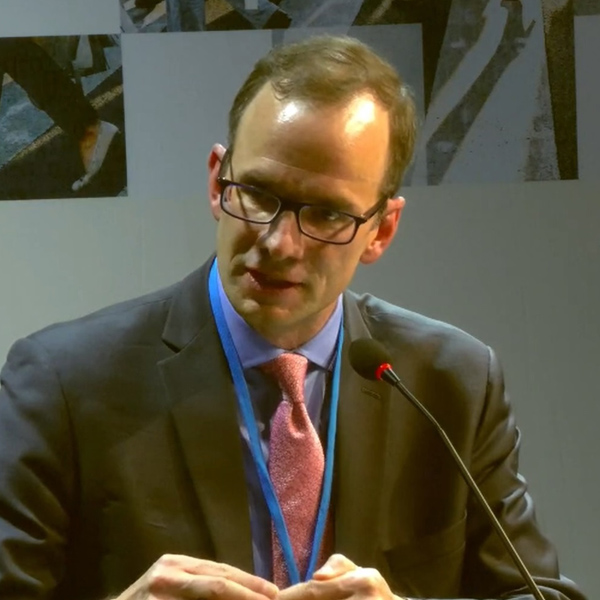
The U.K. launched a new clean heat initiative Thursday at the United Nations Climate Change Conference (COP26) in Glasgow, Scotland, to generate a global understanding on how to decarbonize the built environment.
“To help countries overcome the barriers for decarbonizing heat, greater collaboration will be required so that policymakers can share best practices, we can scale markets for clean heating and energy efficiency solutions across multiple countries and provide better facilities for private sector partnerships,” said Martin Callanan, U.K. minister for business, energy and corporate responsibility.
Launched under the Global Alliance for Buildings and Construction (GABC), the Clean Heat Forum sprang out of a collaboration with Colorado-based nonprofit RMI. GABC, which originated at COP21 in Paris, has 35 member countries, including the U.S. and Canada.
“We see the GABC as the center of gravity for coordinating action for building decarbonization,” Callanan said during a launch event for the forum.
Global building decarbonization is not on track to reach the goals of the Paris agreement, according to the GABC-led 2021 Global Status Report for Buildings and Construction released in October. Data for 2019-2020 show a temporary improvement in decarbonization levels, but the report attributed the change to economic slowing under the COVID-19 pandemic. Emissions and energy consumption will rebound in the near term, leaving a narrow window of opportunity to make the building industry more sustainable, the report said.
 Jon Creyts, managing director and chief program officer at RMI, hosted a panel discussion Thursday at COP26 for the launch of the Clean Heat Forum. | UN Climate Change Conference UK
Jon Creyts, managing director and chief program officer at RMI, hosted a panel discussion Thursday at COP26 for the launch of the Clean Heat Forum. | UN Climate Change Conference UK The heating and cooling sector represents 51% globally of energy demand, said Rana Adib, executive director of the international think tank REN21.
“It’s clearly a sector that is massively lagging behind in the renewable energy share, which is 10%,” she said during the launch event. The lag, she added, is due to a lack of government attention to the heating sector.
“Only 22 countries have a policy and regulatory framework on renewable energy heat,” she said.
While 1,300 cities have either a renewable energy target or policy and regulatory framework to support renewable energy, only 300 cities have a support mechanism for renewable energy in the heating and cooling or buildings sectors.
With much of the world’s building stock located in cities, they have a vital role to play in the global ambition on building decarbonization, Adib said.
Municipal-level discussions on climate change usually focus on transportation and energy production, and heating is “neglected,” Zdeněk Hřib, mayor of Prague, Czech Republic, said during the launch.
In Prague, he said, 90% of the city’s heating is fossil fuel-based, and the heating sector accounts for 11% of the city’s greenhouse gas emissions.
To address building emissions, the city made sustainable buildings one of the main parts of a 2019 climate pledge. A flagship clean energy project for the sector includes installation of heat pumps on the water outlet from the city’s wastewater treatment facility.
The facility’s output, Hřib said, is 10 degrees hotter than water in the major river that runs through the city.
“We would like to bring this waste heat that is now being lost completely into the heating system of Prague, which will make our city more carbon neutral than it is now,” he said.
While the heat pump market has realized a major surge in recent years, Adib cautions that it is not a silver bullet for building decarbonization.
Solar thermal and sustainable waste-to-energy are important technologies for the sector, she said, adding that energy efficiency could be a better option under certain conditions.
“We need to raise our voice differently, think about calibration and become much better in communicating about what it means to have good quality heat,” she said.


